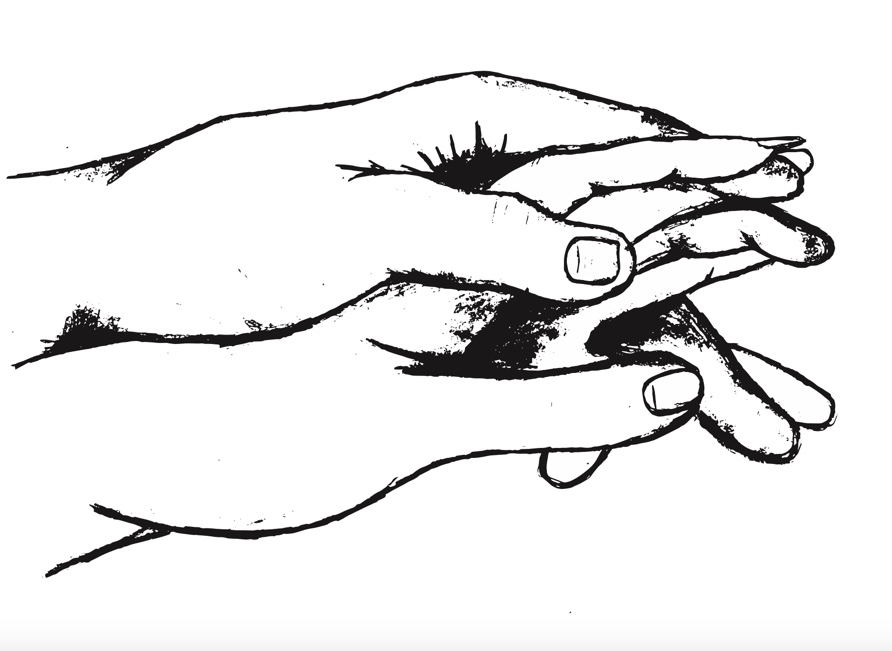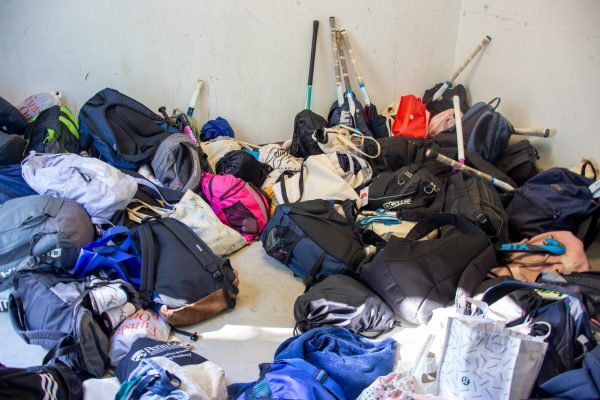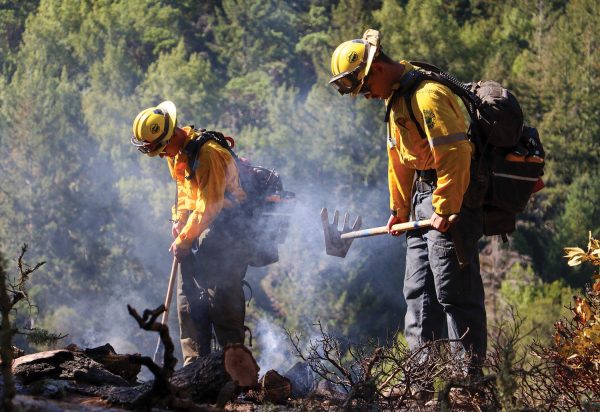“U up?” for the scoop on hookup culture at Archie Williams
Illustration shows two hands interlocking as would if in a intimate relationship.
Hookup culture: a culture that accepts and encourages casual sexual encounters, including one-night stands, without including emotional intimacy or a committed relationship. Though it may seem exclusive to adults, hookup culture is present at Archie Williams.
The California Healthy Kids Survey, administered during the 2021-22 school year, revealed 30 percent of Archie Williams students have had sexual intercourse. However, surveys done by Peer Resource reveal that students assume a higher percentage of their peers are sexually active.
Wellness Outreach Specialist Danya Axelrad-Hausman feels that overestimation could lead to students experiencing unwanted pressure and expectations. Throughout Hausman’s two years at Archie, they have witnessed a multitude of contrasting experiences relating to hookup culture.
“I think exploring and trying things out, having experiences that aren’t always positive and are messy, is learning and is normal and a part of getting to know yourself,” Hausman said.
While hookup culture is present and normalized in adulthood, Hausman thinks having casual sex may be trickier for teenagers to navigate. They think that, due to incomplete development, it can be more difficult for teens to communicate whole-heartedly with a sexual partner.
“In an ideal world, if someone isn’t ready to have a conversation about sex with their partner or someone they want to hook up with, that could be an indicator that maybe they’re not ready to have sex,” Hausman said. “But of course, that’s not how it always plays out.”
Additionally, teenagers often don’t have a developed understanding of personal desires and individual comfort levels.
Hausman thinks that internal consent needs to be more widely discussed. They find it critical to figure out the influence of external expectations and identity-based coercion. Peer pressure can develop into a sexual context and they believe that can be dangerous if a teen hasn’t fully realized their boundaries.
Understanding personal comfort and readiness is already challenging and being able to communicate boundaries takes even more maturity. Having sex without emotional familiarity may make it difficult for a partner to recognize limits and receive communication. Without established amiability, the bridge from a hookup to a relationship can be harder to cross, leading to uncomfortable confusion.
An Archie Williams senior, who wishes to remain under the anonymous name “Bernie” to protect their privacy, has experienced miscommunication because of hookup culture.
“At our age, I feel like communication in relationships isn’t that well-formed… I feel that oftentimes people jump into sex way too fast and can’t form a relationship out of that,” Bernie said.
Various teen-focused shows such as Mean Girls and Euphoria spotlight hookup culture as teenagers getting drunk, hooking up with somebody at a party, and waking up to regret it the next morning. Normalized behavior in media can lead to similar patterns in its audience, as shown by the California Healthy Kids Survey. The survey found that 30 percent of sexually active students at Archie Williams were under the influence of drugs or alcohol the last time they had sexual intercourse.
An anonymous Archie Williams junior, who will be referred to as “Justine,” has shared her thoughts on the impact of substance use on hookup culture at Archie Williams.
“I think for a first time [hookup] it’s not the best decision to be completely under the influence. But I think people do it so that they are more easygoing, and they have an easier time doing things,” Justine said.
While substances may reduce potential anxiety regarding hookups, making critical decisions under the influence puts students in danger. While minors cannot legally consent to sexual activity at all, nobody can consent to sexual activity under the influence of drugs or alcohol.
“Obviously, consent comes first. It’s important [to make sure that] someone isn’t getting you drunk so that you say yes to hooking up with them… It’s good to make sure you’re not the only one under the influence,” Justine said. “Hookup culture can be kind of unsafe, not knowing who they are or what they’ve done.”
According to the California Healthy Kids Survey, 25 percent of Archie Williams students who have had sex reported having sexual intercourse due to pressure. The survey also found that 7.6 percent of Archie Williams students who have used drugs or alcohol have had unwanted or unprotected sex while intoxicated. These statistics highlight the correlation between making sexual decisions while under the influence, regret or shame, and the necessity for change.
The Wellness Center at Archie Williams offers support for sexually active students. Peer Resource also offers assistance through confidential peer counseling.
Hausman reports that over 100 students have been “condom certified” and have received free contraceptives so far this year. By the end of the year, they expect to see over 400 students participating in this program, based on previous school year statistics. The Sexual Health Clinic has additionally supported approximately 30 students this fall through pregnancy testing, STI testing, birth control, and more.
The California Healthy Kids Survey found that 87 percent of students having sex that could result in pregnancy used a form of birth control, and 42 percent of students used a condom, which are available for free through the Wellness Center.
The upward trend in practicing safe sex as they age is a positive sign of Archie Williams increasingly supporting the sexual health of students. Peer Resource and Wellness believe that providing resources is more effective at protecting students than discouraging experimentation.
While some students crave a deep emotional connection with their partners, others would rather separate emotional intimacy from sex.
A junior at Archie Williams, going by the name “Grant” believes that the encouragement of exploration because of hookup culture is mainly positive.
“I think hooking up with people and getting to know other people and their bodies is cooler than just getting to know one person,” said Grant.
Junior Greta Kernodle agrees, believing that dating at such a young age might not be worth it. She sees positive potential in complex relationships but has seen them go awry amongst her peers.
“I think dating in your high school career can limit your high school experiences,” Greta said.
While some students may choose not to date in high school, others may be searching for a partner and struggle with the casual air surrounding sex at Archie Williams. Students find that the hookup culture may have created a blurry line between a relationship and a situationship that can cause confusion and be disheartening to navigate.
“[Jumping into sex outside of a relationship] breaks [the potential for an] emotional bond and now it’s just a sexual thing. It makes it hard to be in a stable relationship,” Bernie said.
If the incentive to get into a relationship is a sexual partner, and adolescents can find a hookup with “no strings” attached, many teens may stray away from more committed relationships.
“Say you’re hooking up with the same person every weekend and they go to the same school as you. You spend that time with them and share those intimate moments with them, but then you act as if you don’t know each other,” Justine said.
Justine finds the emotional impact of those messy hookups to be distressing, and she is not alone. The Wellness Center and Peer Resource are actively seeking to support students who may share similar struggles, and the California Healthy Kids Survey will continue to report changes in student safety. Their efforts, however, will not prevent students from experiencing difficulty due to normalized hookup culture, which requires careful navigation.

Kyra is a senior, in her third year of journalism. She loves pickles, listening to music, and stargazing. You can find her driving around with her bag...

Luca is a senior, in his third year of journalism. You can often find him camping, snowboarding/skiing, or getting a nose job. He is also an avid rock...

Neve is a sophomore, in her second year of journalism. She loves water and nature, reading, and hanging out with friends. You can find Neve in her room...







